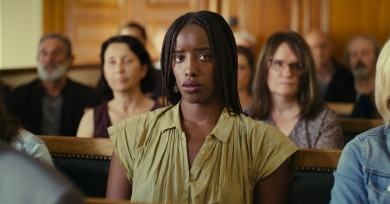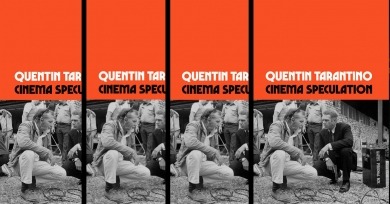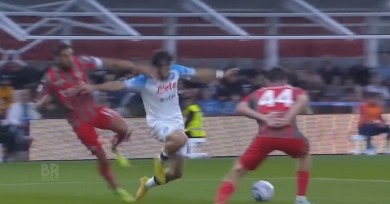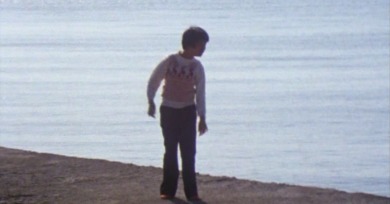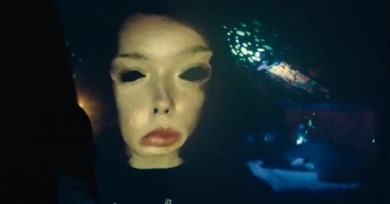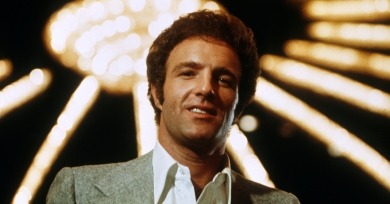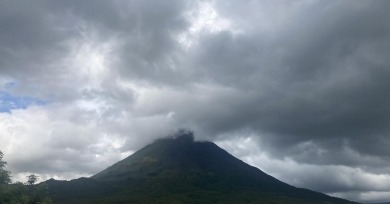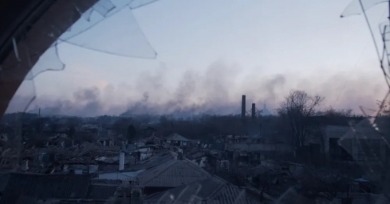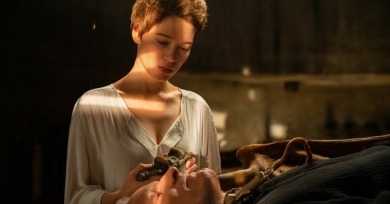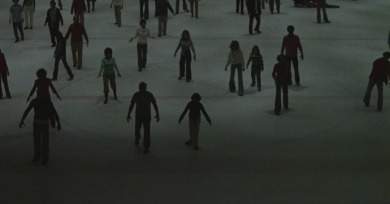Features
Years in Review
Saint Omer, The Fabelmans, The Eternal Daughter, EO, Crimes of the Future, All the Beauty and the Bloodshed, Nope, We're All Going to the World's Fair, Aftersun, No Bears, Armageddon Time
The book just about holds together thanks to its sheer freewheeling enthusiasm and shoot-from-the-hip attitude, dispensing opinions by the yard, almost all of them hyperbolic. And hyperbole is just one of the problems.
The soccer highlight video has proliferated. Whether 90 seconds or 10-plus minutes, these little portraits of players are essential for fans who try to keep up with the game in all its inexhaustible intricacies . . . They also have an aesthetic of their own, with their own characteristic music, montage, and mise-en-scène.
Tsuchimoto made more than a dozen more films about Minamata, which reflects a level of personal dedication unrivaled by most other documentarians. He also made films about student revolts, the plight of the average fisherman, Siberia, and Afghanistan.
A Few Great Pumpkins
We’re All Going to the World’s Fair, The Funhouse, Ginger Snaps, Frenzy, Maniac, Baby Blood, Possum
Translating Poe to a visual medium is an inherently tricky endeavor: though the plots of his stories lend themselves to film, the everlasting poignancy of his work is his deft use of language to conjure moods of ominous ineffability.
A Few Great Pumpkins
Every Halloween, Reverse Shot presents a week’s worth of perfect holiday recommendations. Here is a complete list of every film covered in our A Few Great Pumpkins essay series, 2006–2021.
That tension that Caan carries merely by being on-screen might be best exemplified in The Gambler, the 1974 film directed by Karel Reisz from a James Toback script. It follows Caan as Axel Freed, a clever Harvard-educated literature professor and gambling addict from a well-to-do New York Jewish family.
The titles forming this recent trend have diegetic time loops, ones built into their narratives and acknowledged by the characters.
I actively learned from what I saw at the Costa Rican International Film Festival: words, sensations, geographies, lost histories. And I learned even more from the artistic director, Fernando Chaves Espinach, a curator with a strong sense of where the fest has been and where it is headed.
Welcome to the 20th annual declaration of the Golden Age of Documentary Filmmaking. Or is it the 25th annual? The moniker has been invoked intermittently for roughly this last fifth of the history of film exhibition.
Discussing the work of David Cronenberg and the trans metaphors and tactility of his latest film, Crimes of the Future.
An appreciation of George A. Romero's beloved, decades-spanning horror epic, in conjunction with MoMI's screening series Films of the Dead: Romero & Co., June 25–July 30.
,
Elden Ring is not just a single-player game but a sandbox, a hobby, a lifestyle. It sold 12 million copies in a single month. It is, bar-none, the event game of the year.
